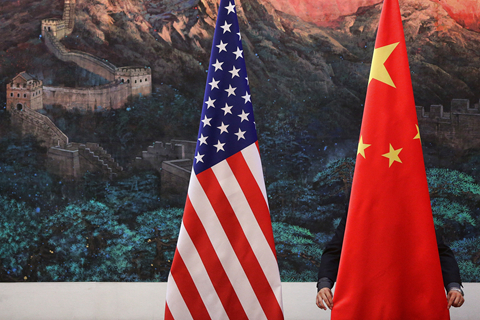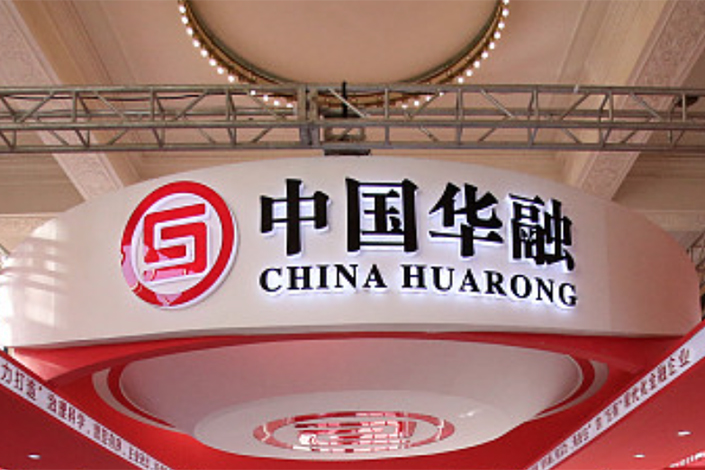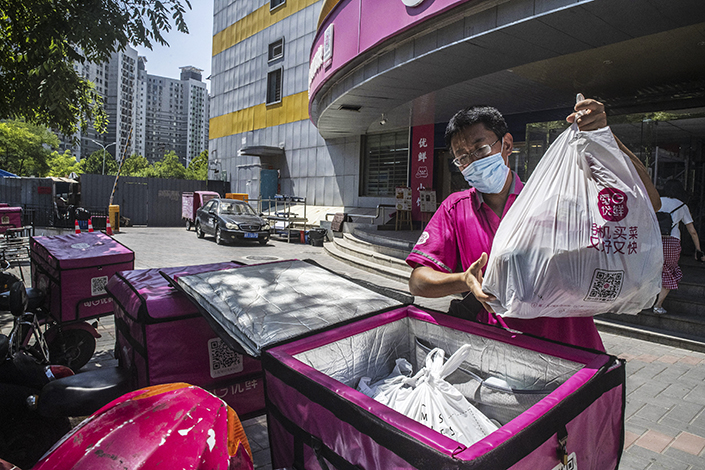CX Daily: China, U.S. Agree to Ease Visa Restrictions on Journalists

China-U.S. /
China, U.S. agree to ease visa restrictions on journalists
China and the U.S. reached an agreement to ease visa restrictions imposed on each other’s journalists in an effort to soothe tensions that led to Trump-era tit-for-tat measures against media workers.
The consensus was made before this week's virtual meeting between the two countries’ presidents, according to state media reports. Under the terms of the agreement, the U.S. will issue one-year multiple-entry visas for Chinese journalists and initiate the process to address duration-of-stay issues in the country. China will then issue equal treatment to American journalists after U.S. policies are in force “based on the principle of reciprocity,” the reports said.
Opinion: Summit sets the right course for China-U.S. relations
Fidelity /
Q&A: Fidelity executive explains how foreign investment services can compete for China’s wealth
China’s fast-growing wealth management market has continued to attract foreign financial institutions. In August, U.S.-based Fidelity International got approval to set up a wholly owned mutual fund business in China, becoming the second global investor after BlackRock Inc. to win such a nod. Fidelity International was also the first foreign institution to obtain a wholly owned private fund management license in China in 2017.
When entering a foreign market, Fidelity International often sets up wholly owned businesses instead of joint ventures. In an exclusive interview with Caixin, Rajeev Mittal, the company’s managing director for Asia Pacific ex-Japan, discussed the reasons for this and the company’s strategies for competing against local peers in China.
FINANCE & ECONOMY
The logo of China Huarong Asset Management at an exhibition in Beijing in 2018. Photo: VCG
Huarong /
Huarong cleared to raise $10.97 billion via bond sales as part of rescue plan
China Huarong Asset Management Co. Ltd. won regulatory approval to sell bonds to raise as much as 70 billion yuan ($10.97 billion) three months after a government-backed rescue plan was secured to salvage the debt-ridden distressed-asset manager.
The proceeds of the borrowings must be used mainly for its main business such as the acquisition and disposal of nonperforming assets and debt-to-equity swaps, the China Banking and Insurance Regulatory Commission said (link in Chinese) Tuesday on its website. The announcement, dated Nov. 11, said Huarong should strictly abide by the regulations for issuing financial bonds and disclosing information and provide a written report about the issuance to the commission within a month of its completion.
The fundraising plan marks the latest step in Huarong’s restructuring and rehabilitation after it was led to the brink of collapse by its corrupt former Chairman Lai Xiaomin.
Huarong inks $6.6 billion of share sales to five strategic investors
Investors /
Buy the dip or avoid risk? Investors disagree on Chinese tech stocks
Recent volatile moves by U.S.-traded Chinese technology stocks amid regulatory crackdowns in China prompted divergent moves by institutional investors: Some bailed out, and others doubled down.
Hillhouse Capital Group, for example, dumped all its holdings in Chinese ride-hailing platform Didi Global Inc., gaming giant NetEase Inc. and tutoring leader New Oriental Education & Technology Group Inc. It also slashed its stakes in Chinese low-cost retailer Miniso, delivery carrier ZTO Express Inc., electric-car maker XPeng Motors, video-sharing website Bilibili and e-commerce platform Pinduoduo Inc., according to filings Monday with the U.S. Securities and Exchange Commission.
Covid-19 /
Beijing to limit domestic flights from regions with Covid cases
Beijing will restrict inbound flights from capital cities of provincial-level regions that are deemed at medium or high risk, according to the country’s top aviation authorities, as the Chinese capital steps up Covid-19 prevention and control measures amid flare-ups across the country.
The authorities would limit flights from such cities to Beijing to one per day with up to 75% occupancy, according to the Civil Aviation Administration of China’s North China Administration Bureau.
Quick hits /
Fed orders China’s ICBC to fix risk-management deficiencies
One of Asia’s oldest hedge funds buys distressed China debt
China is buying more Brazil soy in signs of shifting trade flows
BUSINESS & TECH
A deliveryman packs orders into the back of an electric motorcycle outside a Beijing Missfresh warehouse in August 2020. Photo: VCG
Grocery /
U.S.-traded Chinese e-grocers bleed red ink despite rising orders
Missfresh Ltd. and Dingdong Ltd., both U.S.-traded Chinese online grocery platforms since the summer, suffered widening losses in the third quarter even as revenues grew.
In the three months through September, Nasdaq-listed Missfresh’s net loss attributable to ordinary shareholders swelled to 973.7 million yuan ($151.1 million) from 616.2 million yuan a year ago, while its revenue rose 47.2% year-on-year to 2.1 billion yuan, according to its earnings report released last week.
Meanwhile, New York-listed Dingdong reported a net loss of 2 billion yuan in the third quarter, compared with an 828.6 million yuan loss in the same period of last year, even as its revenue more than doubled to 6.2 billion yuan, according to its financial report published Monday.
Electric cars /
Chongqing Changan teams up with Huawei to roll out smart electric vehicle
Chongqing Changan Automobile Co. Ltd. unveiled the first model under its new smart electric-vehicle brand Avatr, joining other traditional Chinese automakers on the intelligent-car bandwagon.
The Avatr 11 SUV is scheduled to start deliveries in the third quarter of 2022, Avatr Technology (Chongqing) Co. Ltd. said Monday. Chongqing Changan is the unit’s biggest shareholder with a nearly 40% stake.
The SUV, created in collaboration with Huawei Technologies and battery giant CATL, will carry the “HI” logo.
Batteries /
Battery maker CATL cuts fundraising target after questions from Shenzhen bourse
Chinese battery giant Contemporary Amperex Technology Co. Ltd. (CATL) cut billions of yuan off the amount of capital it intends to raise through a private share placement after the Shenzhen Stock Exchange suggested the plan was excessive.
According to an exchange filing (link in Chinese) published Monday, CATL will now seek to raise 45 billion yuan ($7.05 billion) — instead of 58.2 billion yuan as announced Aug. 12 — from up to 35 institutional investors by selling a 10% stake in the company as part of a plan to roughly double its battery capacity.
Sinopec /
China’s Sinopec appoints new chairman after four-month vacancy
Sinopec Group has a new chairman as the Chinese state-owned refined oil titan officially appointed Ma Yongsheng to the role at an executive meeting Tuesday, four months after the position became vacant.
Sixty-year-old Ma, the general manager of China Petrochemical Corp, better known as Sinopec Group, has been acting chairman since his predecessor Zhang Yuzhuo became Communist Party secretary in July. Ma has now relinquished the general manager role.
Quick hits /
BeiGene’s $31 billion Shanghai share sale wins approval
NetEase’s music app Cloud Village revives delayed Hong Kong IPO
GALLERY
Chinese driver to join F1 team
Recommended newsletter for you /
China Green Bulletin Premium - Subscribe to join the Caixin green community and stay up to date with the most exclusive insights on ESG, energy and carbon. Sign up here.
Thanks for reading. If you haven’t already, click here to subscribe.
- MOST POPULAR




